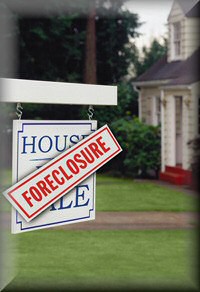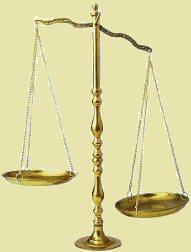| |

Our statewide top
quality, unique and proven services concentrate
in the following areas:
-
Homestead
Exemption Initial Applications and Claims
-
Head
of Family Claims to Protect Wages and Income
-
Retirement, Income,
Wage and Salary Protection
-
Community Association and HOA Property Management
-
FEMA Flood Remapping -
Letter of Map Amendment
-
Reduction of Property
Taxes for Florida Homeowners
|
-
Appeals of Denial or
Revocation of Homestead Exemption
-
Real
Estate Homestead Tax Exemption Consulting
-
Home Equity Protection
from Judgments and Liens
-
Homestead Exemption Value Adjustment
Board Appeals
-
Real
Property Inspections and Site Surveys
-
Real Property Management
and Maintenance Services
|
NO
ESTATE PLAN OR FAMILY'S PROTECTION IS COMPLETE WITHOUT OUR SERVICES!
Foreclosure
of privately owned properties is a silent
national epidemic and it has become a brutal rape
of the American dream of home ownership. No homeowner should
be forced to lose his, or his family’s home along with a lifetime
of equity, over an unpaid bill or any other valid debt, usually
amounting to only a few dollars before lawyers or bill collectors
inflate it with their collection fees. Debts can be collected in
many other ways that do not violate the constitutional rights of
America’s
homeowners. Foreclosure is like using a bulldozer to bury an ant
hill. An attorney ironically put it best when he said that
foreclosure was the nuclear weapon in a legal enforcement arsenal
and it is definitely overkill. Florida Homestead Services can stop
foreclosure or lien's dead in their tracks.

A
man’s home is truly his castle according to the Florida
Constitution. It is a castle that is, and should be absolutely
impenetrable by any legal foe or by any creditor. The homestead
exemption for asset protection of real property purposely provides
the owner of real property with a shield from virtually all
creditors. Florida courts
have liberally expanded the legal and statutory definitions of
homestead property, which includes more than just a single family
home. Such places of residence, like condominiums, manufactured
homes or a mobile home, are afforded the full homestead protections
given by the Florida Constitution as are almost any other type of
primary residence. Whatever kind of residence a person owns, their
investment and equity in their primary residence cannot be seized by
any creditor for any reason, but only if the residence is properly
claimed as their designated homestead. The
protection is not automatic as the statutes require certain actions.
Under
Florida
law,
homestead exemption may not be used to shield property from: (1)
payment of taxes and assessments thereon; (2) obligations contracted
for the purchase, improvement or repair thereof; or (3) obligations
contracted for house, field or other labor performed on realty.
Although
a castle to one person may be a shanty to another, the law does not
so discriminate. Regardless of whether one’s castle is a
traditional family home or a modest cottage, whether it is a rural
farmhouse or a villa by the sea, whether it a houseboat that floats
or a vehicle that sits on wheels, whether it is a condominium or a
co-op; it receives the same protections under Florida
law.
Many
individuals consider the equity in the primary residence (homestead)
as one of the more sacrosanct assets when it comes to asset
protection. Both the Florida Constitution and
Florida
law
provide that the equity in our "homestead" as the primary
residence of a
Florida
resident,
is exempt from creditors' claims, and the Florida Supreme Court has
issued opinions in the past that were extremely protective of the
"Homestead Exemption."
Florida
homestead
is not limited to one owner per home or property. All of the persons
who jointly own and also reside on a 'primary residence' have
homestead protection available to them, and no creditor of either of
the co-owners or of the co-residents can force the sale of a
property to pay the debt. If a partial homeowner became a judgment
debtor, the interest that they have in the residence and that of the
other owner would be protected from any forced sale.
The
Florida
Constitution
prevents the Internal Revenue Service from foreclosing on a federal
tax lien against a homeowner, and forcing them to sell the primary
residence to pay the tax debt. When the homestead is sold, or when
the owner dies, the IRS will take the sale proceeds to pay the tax
lien. Other exceptions to homestead protection are voluntary liens,
such as mortgages, construction and mechanics liens for work done
on, or goods supplied to your principle residence.
FHS
can properly claim your real property as homestead property, immune
from virtually lien or judgment. FHS can provide this valuable,
unique and proprietary service at the closing table.
The
income or wages of the head of a family are exempt from garnishment
or any other process of ‘attachment’ unless the person’s net
wages are more than five-hundred dollars per week, and that person
has agreed in writing to allow the wages to be taken to pay the
debt. The statutory definition of a ‘head of family’ now
includes all natural persons who reside in
Florida
who
provide more than one-half of the support for a child or any other
dependent. Wages in a bank account that belong to a head of family
retain their protection from being seized by creditors or by
garnishment for six months even if the wages are mixed with money
from other sources. If a ‘head of family’ has not agreed in
writing to allow the garnishment or attachment of his or her wages,
all the wages are exempt from any court process of attachment,
income deduction or garnishment.
Homestead
protection is
effective against civil judgments, including marital settlement
decrees, but it does not stop courts from taking other measures to
enforce awards of alimony or child support.

Florida
statutes
state that wages, salary, commissions and other compensation for
personal services paid to the head of household cannot be garnished
by any creditor if properly claimed as exempt. The ‘salary
exemption’ is an important part of the
Florida
asset
protection laws. The definition of a ‘head of household’ has
been the subject of many
Florida
court
rulings. As long as the dependent, even an adult, depends on his
provider for more than 50% of the dependent’s financial support,
the provider can claim to be a head of household. The provider does
not need to be married and the dependent does not need to reside in
the same house as the parent. In fact, one court ruled that a
dependent may even reside outside of the State of Florida. You
must file a sworn affidavit with the court to declare your ‘head
of family’ status, to claim your exemption and to protect your
wages from being garnished. Florida Homestead Services can claim
your wage exemption for you and declare certain legal issues that
must comply with the law. We can also perform this service at
closing or at any time in a worker's lifetime.
Florida
homestead
exemptions are available to real property owners in Florida
which
covers two separate types of homestead exemption, one homestead
exemption for real property ad valorem tax purposes and a homestead
exemption for real property asset protection purposes. The two are
totally unrelated. The fact that you have one type of homestead
exemption, such as the ad valorem property tax exemption, does not
necessarily mean that you have the other type of homestead
exemption, such as the asset or real property protection exemption,
as each legal exemption has distinct, separate and different legal
requirements. Specifically, the homestead exemption for real
property tax purposes provides an owner of real property with a
twenty-five thousand dollar reduction from the assessed value of the
property, thereby reducing the amount of real property ad valorem
taxes between six and seven hundred dollars per tax year. In
Florida, since real property taxes are paid in arrears similar to
the interest on your mortgage note, the property tax homestead
exemption is only available if the owner is the permanent resident
of Florida as of December 31 of the prior year, and the owner files
an application for the property tax exemption at the county property
appraiser’s office on or before March 1 of the current year.
The
homestead property tax exemption has a separate legal or statutory
basis. As previously mentioned, it allows a resident of
Florida
to exclude from the
calculation of his ad valorem real property taxes fifty
thousand dollars of the assessed value of his principal residence.
Do not confuse the homestead property tax exemption with 'Homestead’,
and do not allow anyone to convince you it is related. It is not.
Florida
homestead law complicates
real estate titles and conveyances, the descent and distribution of
decedents’ estates, and the collection of money
judgments. In addition, it is often confused with, or
considered to be associated with the homestead exemption from real
property taxes. Every
Florida
resident is entitled to have
his interest in the real property on which he resides, his properly
claimed ‘homestead’, exempt from forced sale for the collection
of money judgments, liens or for almost any other reason. After the
owner’s death, this exemption transfers to his surviving spouse
and heirs at law who inherit the homestead. The key to the
'Homestead’ protection is that the exemption must be properly
claimed prior to a
judgment.
Florida
Homestead Services can provide this valuable, unique, exclusive and
proprietary service at the closing table or at any time for
virtually any homeowner.
Florida
Homestead Services...protecting your home from unsecured creditors
one homeowner at a time.
Free Homestead Information Request Form
*All Fields Required
|


